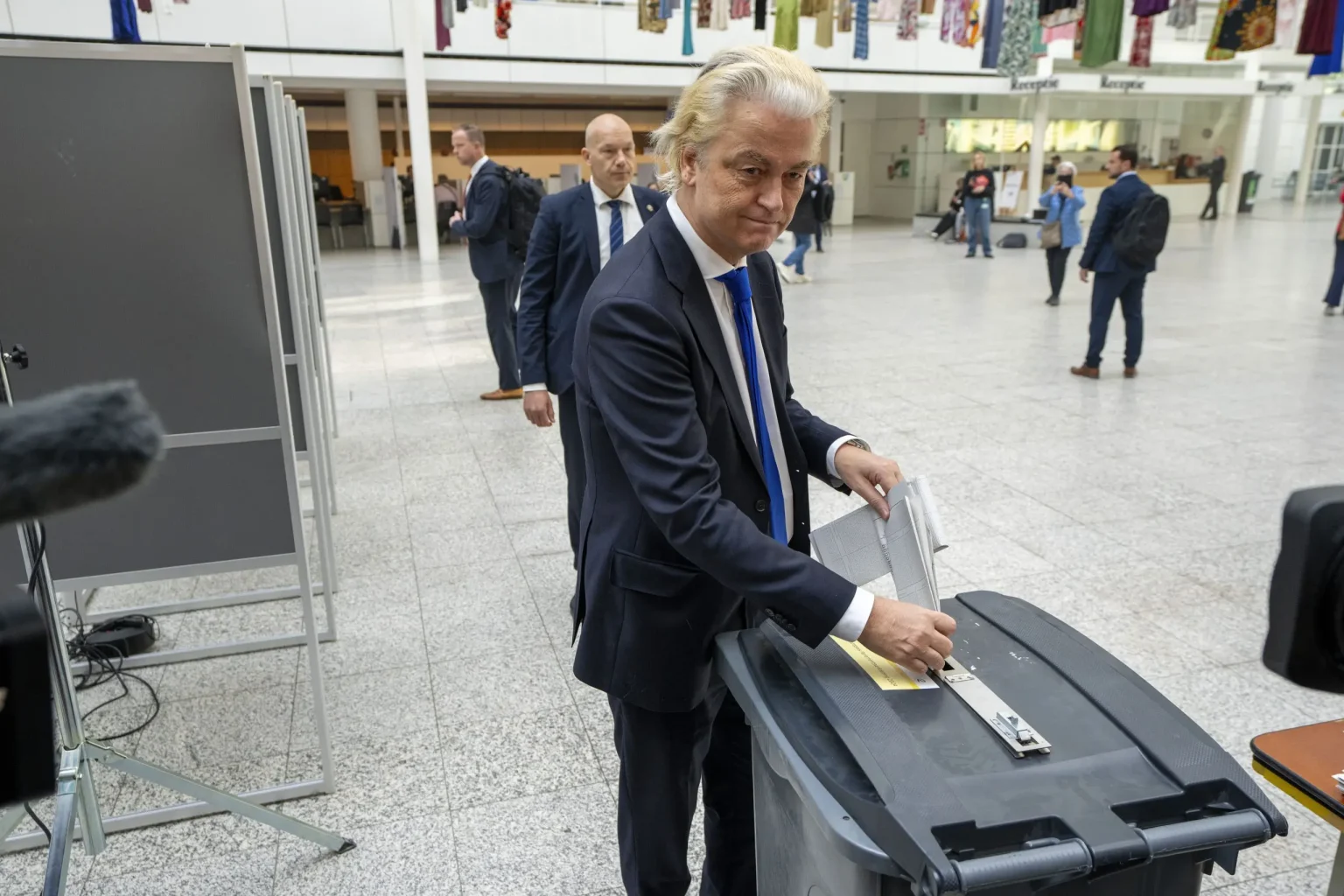The European Union parliamentary elections began in the Netherlands, with Geert Wilders’ far-right party making significant gains and being in a tight race to emerge as the biggest party. The poll results suggest a strong showing for the hard right across the EU, reflecting divisions over the need for a more powerful EU or more power to member states. Similar divisions have been observed in campaigns throughout Europe, from Finland to Portugal and Belgium to Hungary.
The final exit poll indicates that Wilders’ Party for Freedom could win seven seats, up from one in the last Parliament, while the center-left alliance is set to win eight seats. The winner has not been officially declared yet, as results from all 27 EU nations are awaited. Wilders, while not matching his previous national election success, remains jubilant and aims to influence the EU agenda by calling for more autonomy on issues like migration and climate change.
Wilders, like other hard-right leaders, including Giorgia Meloni and Marine Le Pen, aims to weaken the EU institutions while seeking more power within the European Parliament. The final results for the EU elections will be announced in Brussels after polls close Sunday night. The focus is on building a stronger Europe, as highlighted by Frans Timmermans, who is pleased that the pro-European alliance stood its ground against Wilders’ party. The emerging results show a divided sentiment within the Netherlands about the future path of the EU.
Since the last EU election in 2019, populist and far-right parties have made significant gains and now lead governments in three EU nations. The stakes are high in this election, with almost 400 million voters electing 720 members of the European Parliament. The results will impact global issues like climate policies, defense, migration, and geopolitical relations with China and the United States. The European Parliament plays a crucial role in legislating on various issues, including banking rules, climate, agriculture, security, and the EU budget.
The EU elections are the world’s second biggest exercise in democracy, with voting taking place across member states from beyond the Arctic circle to the edges of Africa and Asia. Europe-wide results will be announced Sunday night after all member states have completed voting. Following the UK’s departure from the EU in 2020, the number of MEPs fell to 705. The MEPs, who play a vital role in the functioning of the EU, will elect their president and nominate the president of the European Commission in the upcoming sessions. The decisions made in this election will shape the future of Europe and its relations with other global powers.


